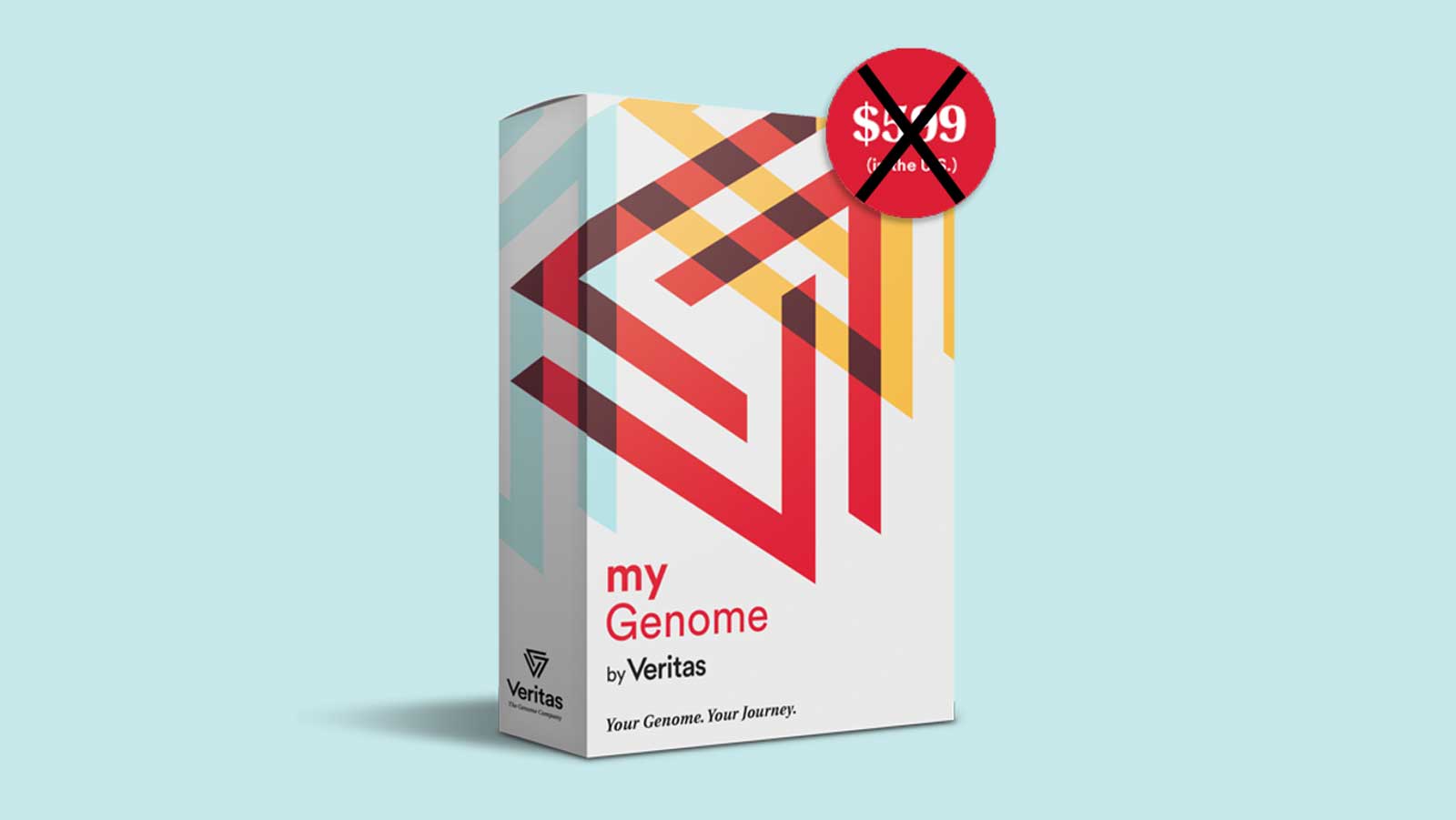A US genome company is ceasing operations over China concerns

Veritas Genetics, which offered to sequence people's genomes for rock-bottom prices, will cease US operations after it failed to raise a new round of financing.
Low price: The company, based in Boston, had tried to entice consumers to get their genome sequenced by lowering the price to $599 last July.
At that cost, Veritas was losing money on every genome. But it hoped to introduce a Netflix-like subscription model; customers would pay ongoing fees to learn new things from their DNA, such as disease risk predictions.
The company had sequenced between 5,000 and 10,000 genomes so far, but there were signs that demand for the service was weak.
China worry: A person familiar with the company said it was going out of business in the US because it could not find new investors given concerns it had previously taken money from China.
Veritas's main investors are all Chinese. They are Lilly Asia Venture, Simcere Pharmaceutical, and TrustBridge Partners.
The US has warned companies working in sensitive areas, including DNA data, over taking Chinese funds. In June, US regulators forced the sale of another American health company, PatientsLikeMe, because its primary investor was in China.
Veritas had been trying to raise $50 to $75 million since earlier this year, this person said, but new investors balked at the Chinese ownership.
Bad news: Veritas tweeted this afternoon that because of an "unexpected adverse financing situation" it would suspend its operations in the US. CNBC reported that it had laid off most of its staff.
The company says it is going to try to make a comeback and continues operations overseas. "I can clarify this temporarily affects US operations only," Mirza Cifric, the CEO of Veritas, said in an email. He said customers outside the US would continue to be served.
Deep Dive
Biotechnology and health
How scientists traced a mysterious covid case back to six toilets
When wastewater surveillance turns into a hunt for a single infected individual, the ethics get tricky.
An AI-driven “factory of drugs” claims to have hit a big milestone
Insilico is part of a wave of companies betting on AI as the "next amazing revolution" in biology
The quest to legitimize longevity medicine
Longevity clinics offer a mix of services that largely cater to the wealthy. Now there’s a push to establish their work as a credible medical field.
There is a new most expensive drug in the world. Price tag: $4.25 million
But will the latest gene therapy suffer the curse of the costliest drug?
Stay connected
Get the latest updates from
MIT Technology Review
Discover special offers, top stories, upcoming events, and more.